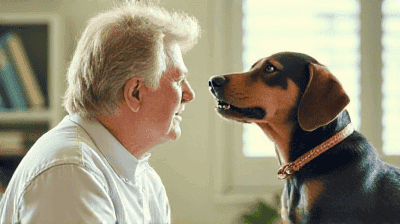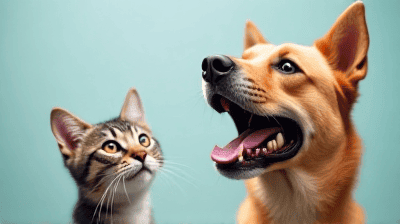Understanding the Cost of Pet Adoption: Budgeting for Your New Family Member

Adopting a pet is a rewarding and life-changing decision, but it’s also a significant financial commitment. From adoption fees to ongoing care, the costs associated with pet ownership can add up quickly. Understanding these expenses and planning for them is essential to ensuring a smooth transition for both you and your new furry friend.
1. The Emotional and Financial Benefits of Pet Adoption
Why Adopt?
Adopting a pet from a shelter or rescue organization not only saves a life but also brings immense joy and companionship to your home. Many pets in shelters are already house-trained, socialized, and ready to become loving family members.
Financial Benefits of Adoption
While adoption involves upfront costs, it’s often more affordable than purchasing a pet from a breeder. Adoption fees typically cover essential services like vaccinations, spaying/neutering, and microchipping, which can save you money in the long run.
2. Breaking Down the Costs of Pet Adoption

Adoption Fees
Adoption fees vary depending on the organization, location, and type of pet. Here’s a general breakdown:
- Dogs: 500
- Cats: 300
- Small Animals (Rabbits, Guinea Pigs, etc.): 100
- Exotic Pets (Birds, Reptiles, etc.): 500
What’s Included in Adoption Fees?
Adoption fees often cover the following:
- Spaying/Neutering: This procedure prevents unwanted litters and reduces the risk of certain health issues.
- Vaccinations: Initial vaccinations protect your pet from common diseases.
- Microchipping: A microchip ensures your pet can be identified if they get lost.
- Deworming and Flea Treatment: These treatments ensure your pet is parasite-free.
- Health Checkups: Many shelters provide a basic health examination.
3. Initial Setup Costs
Essential Supplies
Before bringing your pet home, you’ll need to purchase the following essentials:
- Food and Water Bowls: 30
- Bedding: 100
- Crate or Carrier: 150
- Collar and Leash (for dogs): 50
- Litter Box and Litter (for cats): 50
- Toys: 50
One-Time Expenses
- Initial Veterinary Visit: 200
- Training Classes (for dogs): 300
- Pet Proofing: 200 (e.g., safety gates, chew toys)
4. Ongoing Costs of Pet Ownership

Food
The cost of pet food depends on the type and size of your pet:
- Dogs: 60 per month
- Cats: 30 per month
- Small Animals: 20 per month
Veterinary Care
Routine veterinary care is essential for maintaining your pet’s health:
- Annual Checkups: 200
- Vaccinations: 100 per year
- Dental Care: 300 per year
- Emergency Visits: 3,000 (depending on the situation)
Grooming
Grooming costs vary depending on the breed and type of pet:
- Dogs: 500 per year
- Cats: 200 per year (most cats groom themselves)
Pet Insurance
Pet insurance can help offset unexpected medical expenses:
- Monthly Premiums: 50 (depending on coverage)
Miscellaneous Expenses
- Toys and Treats: 30 per month
- Boarding or Pet Sitting: 50 per day
5. How to Budget for Pet Adoption
Create a Pet Fund
Start by setting aside money specifically for pet-related expenses. Aim to save enough to cover initial costs and at least three months of ongoing expenses.
Research Before Adopting
Understand the specific needs of the pet you’re considering. For example, certain breeds may require more expensive food or grooming.
Compare Adoption Organizations
Different shelters and rescues offer varying fees and services. Look for organizations that provide the most value for your budget.
Prioritize Essentials
Focus on purchasing essential items first, such as food, bedding, and medical care. You can always add extras like toys and accessories later.
6. Ways to Save on Pet Costs

Look for Discounts and Deals
Many pet stores and veterinary clinics offer discounts for new adopters. Check for promotions on food, supplies, and services.
Buy in Bulk
Purchasing food and litter in bulk can save you money in the long run. Just make sure your pet likes the product before committing to a large quantity.
DIY Grooming
Learn to groom your pet at home to save on professional grooming costs. This is especially useful for basic tasks like brushing and nail trimming.
Consider Pet Insurance
While it’s an additional expense, pet insurance can save you thousands of dollars in emergency veterinary care.
7. Financial Assistance for Pet Owners
Low-Cost Clinics
Many communities have low-cost veterinary clinics that offer affordable services like vaccinations, spaying/neutering, and basic care.
Rescue Organizations
Some rescue organizations provide financial assistance or discounted services for adopted pets. Reach out to the group you adopted from to see if they offer support.
Pet Food Banks
If you’re struggling to afford pet food, local food banks or pet-specific charities may be able to help.
Crowdfunding
For unexpected medical expenses, platforms like GoFundMe can help you raise money from friends, family, and the community.
8. The Long-Term Financial Commitment of Pet Ownership
Lifespan of Pets
Pets can live anywhere from 5 to 20 years, depending on the species and breed. Dogs and cats typically live 10 to 15 years, while smaller animals like guinea pigs may live 5 to 8 years.
Planning for Senior Care
As pets age, they may require more frequent veterinary visits, specialized diets, and medications. Start saving for these expenses early.
End-of-Life Care
Unfortunately, end-of-life care, including euthanasia and burial or cremation, can be expensive. Having a plan in place can help you manage these costs with compassion.
9. The Rewards of Pet Adoption
Unconditional Love
Pets provide companionship, emotional support, and unconditional love that can enrich your life in countless ways.
Health Benefits
Studies show that pet ownership can reduce stress, lower blood pressure, and improve overall mental and physical health.
Saving a Life
By adopting, you’re giving a homeless animal a second chance at life and freeing up space in shelters for other animals in need.
Conclusion
Adopting a pet is a decision that comes with both emotional and financial responsibilities. Understanding the costs involved and planning accordingly can help you provide the best care for your new family member while staying within your budget. From adoption fees to ongoing expenses, being prepared ensures a smooth and fulfilling journey for both you and your pet. Remember, the love and joy a pet brings to your life is priceless, and with proper planning, you can make pet ownership a rewarding and sustainable experience.








